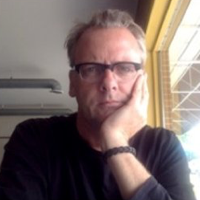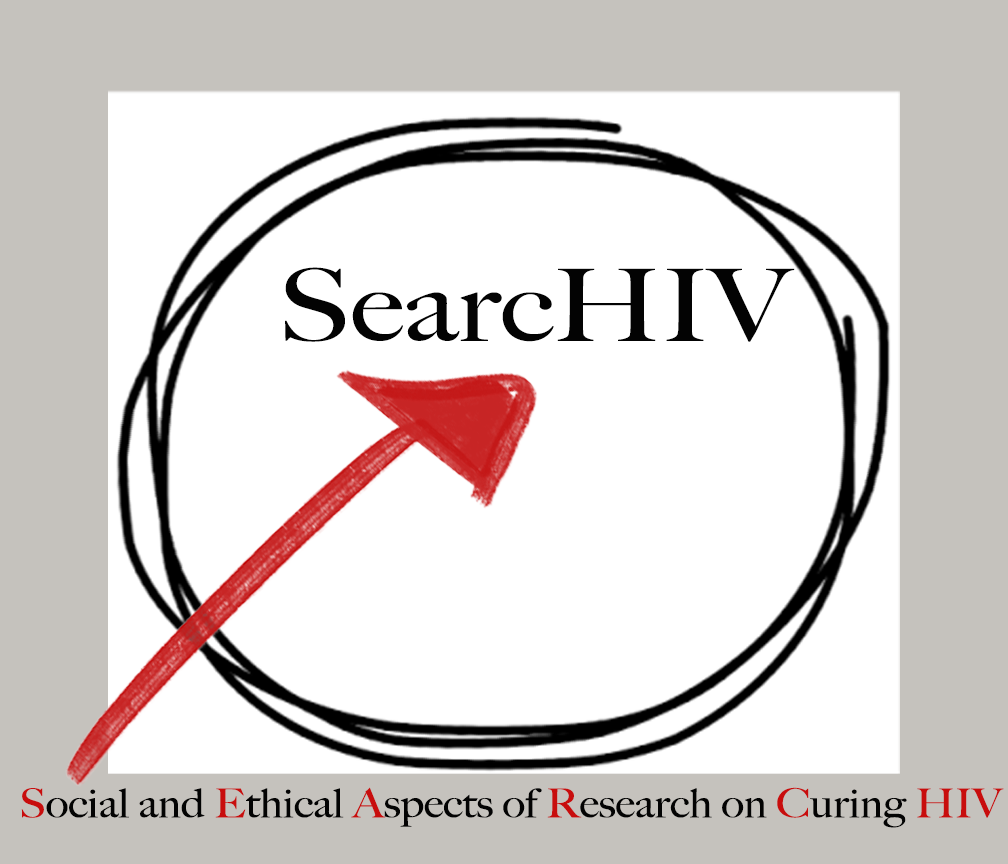We continue our series profiling members of searcHIV and others involved in HIV cure research with an interview with Stuart Rennie. Stuart Rennie is a bioethics researcher and one of the Principal Investigators on the NIH grant funding the searcHIV project. In this interview, Stuart describes the path that led him to working on bioethics research within the HIV field and discusses his hopes for the searcHIV project.

searcHIV: Could you describe your background and what drew you to studying the social and ethical implications of HIV cure research?
Stuart Rennie: My background is in philosophy, and I obtained my PhD at the University of Leuven, Belgium. I came to the USA about ten years ago, and after teaching philosophy at University of North Carolina (UNC)- Greensboro for a few years, the opportunity arose to write a NIH grant proposal aimed at developing capacity in bioethics in central Francophone Africa. I have been involved in bioethics research, consultancy, and education — focusing on issues in sub-Saharan Africa — ever since. Particularly in Africa, the HIV epidemic features prominently in many of the bioethical debates in biomedical research, clinical care and public health, and I have had the good fortune of doing qualitative and ethics work on various aspects of HIV prevention and treatment, such as male circumcision, HIV surveillance and access to antiretroviral therapy. As far as HIV cure and searcHIV is concerned, Joe Tucker and I like to joke that the idea of a social science and ethics project on HIV cure research suddenly came to us while walking together in a parking lot on UNC Chapel Hill’s campus. But both of us had been working in the HIV field for quite some time, and cure research was gaining attention; it was a happy convergence.
searcHIV: What are some of the challenges with conducting qualitative studies on HIV cure research?
Stuart Rennie: One particular challenge stems from the fact that knowledge about HIV cure research is not yet widespread. This research is new and for many outside the HIV research community, we are informing them to some extent about the research taking place at the same time as asking their opinions about it. Another related challenge is how to conduct meaningful discussions with laypersons about highly complex research studies taking place now, and how a potential future cure is likely to impact their lives or communities. There is a lot of interest in talking about HIV cure, but sometimes we don’t quite have the language yet to express our aspirations or concerns.
searcHIV: What do you see as the most pressing bioethics questions related to HIV cure research?
Stuart Rennie: In the short term, the most pressing questions revolve around issues of informed consent and acceptable risk. There is a worry that research participants living with HIV, when they hear that a ‘cure’ study is taking place, may want to join because they (falsely) believe that they stand to gain significant personal health benefits. This is called the ‘therapeutic misconception’ if it involves a belief about improvement in well-being, and the ‘curative misconception’ if it involves a belief in cure. Misconceptions of either sort conflict with the ideal of consent being informed. In regard to risk, many early cure studies may offer negligible benefits and pose significant risk to participants. How much risk is acceptable, even if the participant consents, and how is acceptability of risk determined? In the long term, there will also be distributive justice issues concerning how patients gain access to curative interventions – similar to those faced when antiretroviral treatment was first developed.
searcHIV: What have you been most surprised/excited by since beginning the project?
Stuart Rennie: I have been surprised by how much issues of language have entered into the discussions of HIV cure research. Even what is meant by the word ‘cure’ is not straightforward. Reflecting about what ‘cure’ means is a gateway into issues of history and cultural differences: how has ‘cure’ been understood in medical history, and how is it conceived in non-Western cultures? What excites me is that searcHIV has a multidisciplinary team that can tackle these sorts of inquiries.
searcHIV: How do you hope project findings will be used?
Stuart Rennie: On the practical level, I hope that some of the findings can enhance the responsible conduct of HIV cure research. As it develops, this kind of research may involve new challenges or unexpected variations on familiar ones, and it is important for ethics to keep pace with the science. On another level, a better understanding of what social shifts take place when a disease goes from being incurable and untreatable, to being treatable, to being curable seems to me valuable in itself. Scientific quests are also social interventions, and it is best to know what we are doing to ourselves.
searcHIV: The various ongoing HIV cure clinical trials with human subjects currently taking place around the world mark a key historical time-point in HIV medicine. How do you think future generations will look back on these earliest days on the road to a cure for HIV?
Stuart Rennie: I don’t have a crystal ball, so I can only say how I hope that they will look back. I hope they can look back and understand why people thought that HIV treatment was not enough, and that we felt the need to push towards a cure. And that the quest for cure, like the quest for treatment, was not just a matter of scientific curiosity, but a response to human suffering.


2 Responses to “A Conversation with Stuart Rennie, searcHIV Principal Investigator”
Anonymous
Rennie’s final sentence, ” And that the quest for cure, like the quest for treatment, was not just a matter of scientific curiosity, but a response to human suffering.”
Reminds me as a pozitive person , “Keep your eyes on the prize.” For all humanity to benefit. Kudos, to Stuart Rennie.
Stuart Rennie
Many thanks for your kind comment! I am glad you think it is important to pay attention to the human dimension of HIV cure research. Keeping the focus not just on the virus and the biology, but on the lives of individuals and their communities. This is precisely what the searcHIV project is all about.
Take care, Stuart